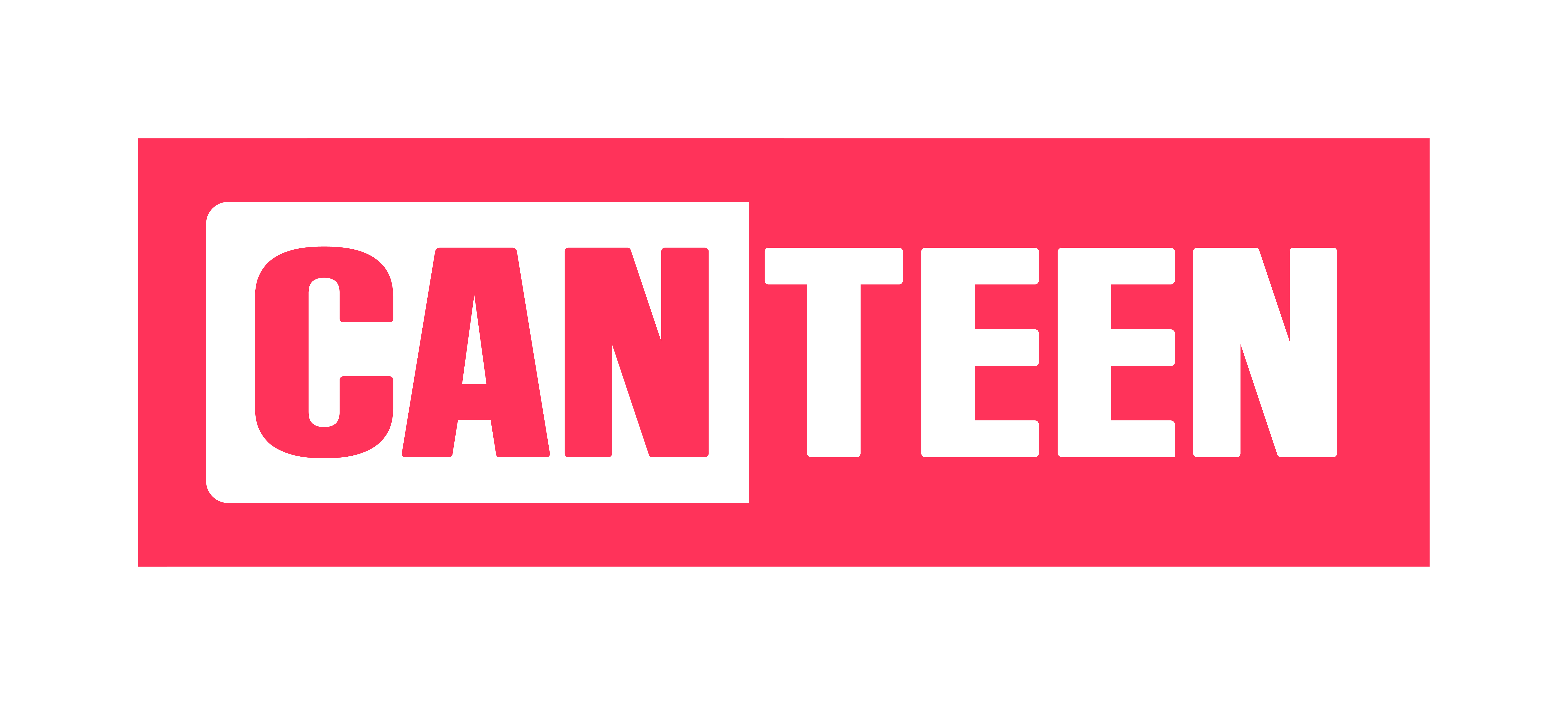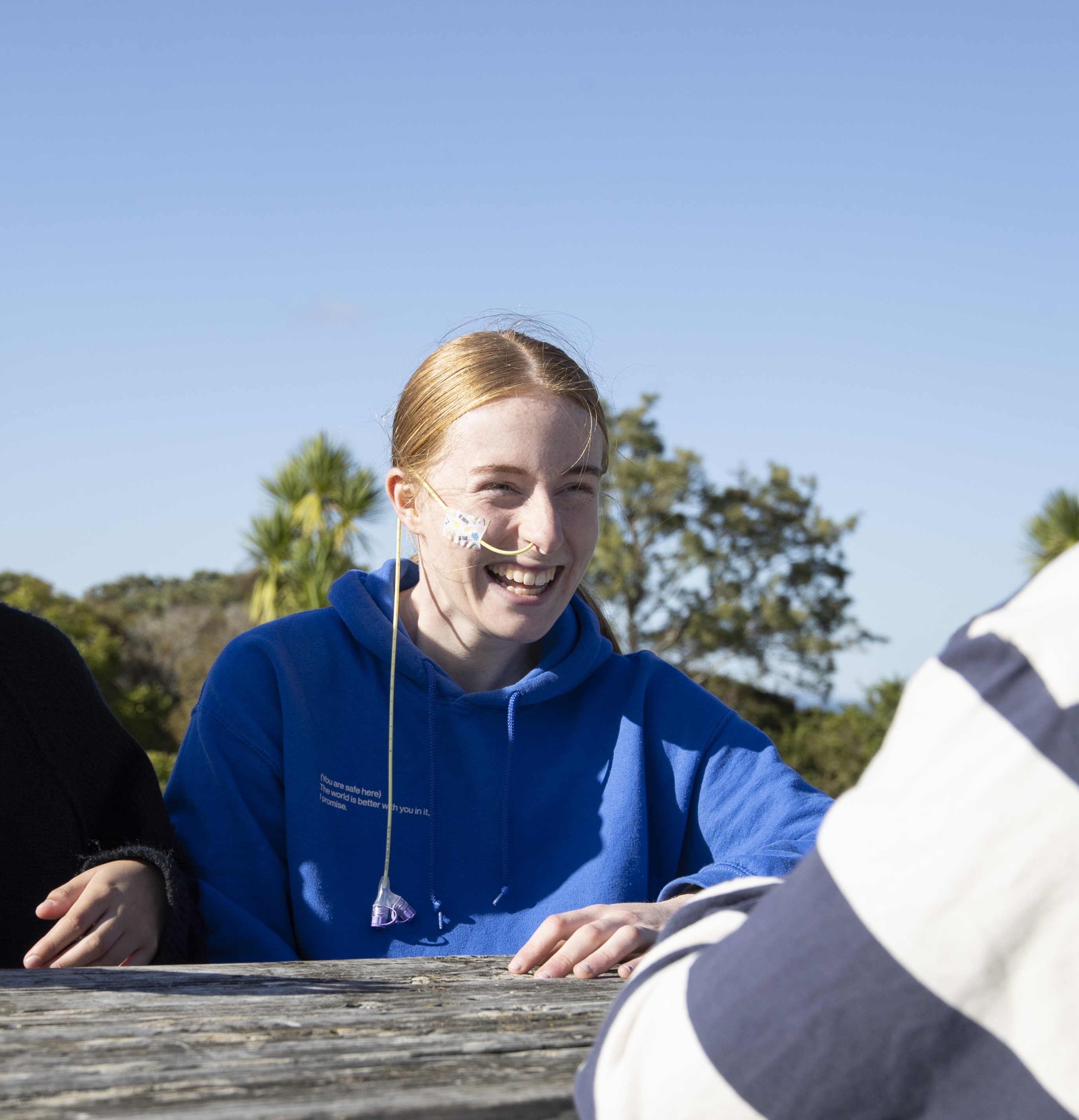I’m such an outdoorsy person and being stuck in a room is horrible.
At just 13, Erin’s life changed before she knew it. She was diagnosed with T-cell acute lymphoblastic leukaemia.
“After visiting Golden Bay for the weekend my mum was concerned about me and took me to the doctor. We were immediately referred to the hospital. Not long after I was diagnosed. I wasn’t told what I had straight away because my mum didn’t want to freak me out.
“But the next day there was a whiteboard in my room with one word on it, leukaemia, that was when I found out what was happening, and we discussed my treatment.”
Going through treatment is scary, but for rangatahi, it can be an especially confusing and isolating time.
“When I was diagnosed it took a long time for the word ‘cancer’ to really sink in. My first thought was about dying, which was scary.
“They said I was lucky because it was an easily treatable cancer, but that didn't ease my mind.”
“It was hard being told that I needed 2 years of intensive chemotherapy. In the first year, I spent 106 nights in the hospital, largely because of infections from chemo.
“I really struggled to eat during treatment because it made me sick. I got so sick they called it ‘death weight’ – if I didn’t eat anything it would have killed me. Even though I was being fed through an NG tube, I kept throwing up.”
For many rangatahi, a cancer diagnosis affects the entire family - it's a very challenging time, making support for families impacted by cancer very important.
“My mum couldn’t work because she had to be at the hospital with me all the time and my dad had just started a new job, so there was a lot of stress on my parents financially. My older brother also had to become a lot more self-sufficient, making his own dinner and looking after himself.
“When my mum had to go back to work, I was left alone in hospital – so, I’d just curl up and sleep.
“But I did spend a lot of time with my older sister Caitlin, we would go shopping and out for lunch – she was my rock during treatment.”
For Erin and her family, it was particularly challenging as they were on the other side of the globe from their support network, having moved to New Zealand from the UK.
“We don’t have a lot of family in New Zealand, so as soon as my auntie heard about my diagnosis, she flew across from the UK to support us.
“Eventually my entire family came over, including my cousin April, who would visit me in hospital, which was really special.”
Having a strong support network is so important because a cancer diagnosis can impact all areas of your life, including socialising, friends, and hobbies.
“I couldn’t see my friends, stay over at friends’ houses, or go to parties because I was always neutropenic.
“I lost all my hair.”
“I lost my mobility; I couldn’t walk anywhere and was bed-bound for a long time. It was awful, feeling so limited. I spent a lot of time by myself, in my hospital room. I did A LOT of Lego.
“I also wasn’t allowed to horse ride, which was a big challenge. I’m such an outdoorsy person and being stuck in a room is horrible.”
“One of the worst things about treatment is that you can only eat certain foods. Something I couldn't eat was sushi, and that is one of my favourite things!”
One of the biggest impacts for Erin was on her schooling. Even though friends couldn’t relate to what she was going through, the support from her friends and teachers made a massive difference.
“I couldn’t go to school or go on school camps, which was hard.
“But when I was finally able to go back to school my teachers were very supportive and made me feel safe. It helped my learning as they never put pressure on me, which made a lot of difference. I loved being back at school, I could jam out in the music room, playing music with my friends.”
“My friends couldn’t relate to what I was going through, but they were very supportive. They visited me all the time, helped me at school when I was in a wheelchair, and always stood up for me if people stared, as I had a nose tube.”
“My friends couldn’t relate to what I was going through, but they were very supportive.”
Erin joined Canteen to connect with rangatahi who could understand what she was going through and to build up her support network.
“When I joined Canteen, it changed my life.
“In the hospital, my Psychosocial Support Worker would visit me every day, spending hours playing games and talking to me. Other times, I would just sleep and not want to talk to anyone. Canteen supported me so I could have a break from the hospital and meet and spend time with others my age who had a cancer experience. We could listen to each other’s stories and spend time together. One of my best friends is from Canteen.
“My Psychosocial Support Worker also came to my home to spend the day with me, and we went for lunch and dinner.”
“My cancer experience would have been a whole lot different. I’ll always be very grateful for what they do.”
Erin finished treatment during the first Covid-19 lockdown, even though things got easier, she still has some lingering effects from treatment.
“I finished treatment in 2020, during the lockdown, but I had to wait three months to ‘ring the bell’, which was the best feeling ever!”
“When I got into maintenance things got easier. We didn’t need to travel to Christchurch every day for treatment, my mobility was back, and I didn’t need my wheelchair, I went back to school and started exams, my hair grew back, and I could eat sushi and McDonald’s again – normal things! Life was great.
“I could also enjoy my ‘make a wish.’ We went to the theme parks in Australia, it was the best!
“My parents also bought me a horse, so I started riding again and am now showing, which has always been my dream. And I can now ride with my best friends.”
“The chemo ruined my nerves, so I still get cramps and certain things make me feel really ill, like travelling in the car.”
Erin is now a Canteen Leader; she joined the programme to learn more about how to support other rangatahi who are impacted by cancer.
“I joined leadership because it’s a once in a lifetime opportunity.
“I’ve led some rangatahi events in Christchurch and even a South Island Hub Day event. But one of the best things has been Leadership Camp at Living Springs. I loved meeting all the other leaders and doing different group activities. They were my favourite because we learnt to trust each other, support others, and work together as a group.”















